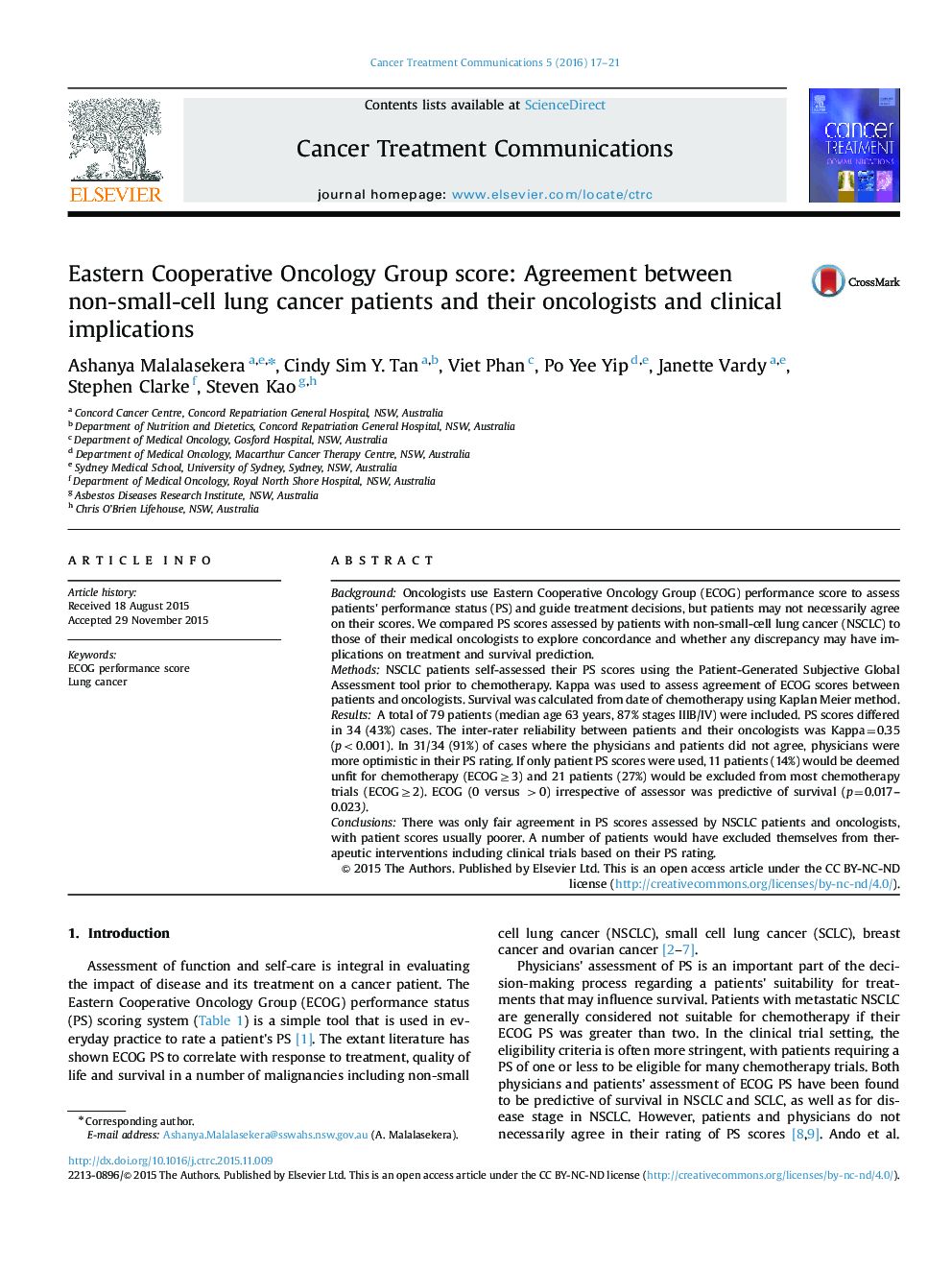| Article ID | Journal | Published Year | Pages | File Type |
|---|---|---|---|---|
| 6190210 | Cancer Treatment Communications | 2016 | 5 Pages |
BackgroundOncologists use Eastern Cooperative Oncology Group (ECOG) performance score to assess patients' performance status (PS) and guide treatment decisions, but patients may not necessarily agree on their scores. We compared PS scores assessed by patients with non-small-cell lung cancer (NSCLC) to those of their medical oncologists to explore concordance and whether any discrepancy may have implications on treatment and survival prediction.MethodsNSCLC patients self-assessed their PS scores using the Patient-Generated Subjective Global Assessment tool prior to chemotherapy. Kappa was used to assess agreement of ECOG scores between patients and oncologists. Survival was calculated from date of chemotherapy using Kaplan Meier method.ResultsA total of 79 patients (median age 63 years, 87% stages IIIB/IV) were included. PS scores differed in 34 (43%) cases. The inter-rater reliability between patients and their oncologists was Kappa=0.35 (p<0.001). In 31/34 (91%) of cases where the physicians and patients did not agree, physicians were more optimistic in their PS rating. If only patient PS scores were used, 11 patients (14%) would be deemed unfit for chemotherapy (ECOGâ¥3) and 21 patients (27%) would be excluded from most chemotherapy trials (ECOGâ¥2). ECOG (0 versus >0) irrespective of assessor was predictive of survival (p=0.017-0.023).ConclusionsThere was only fair agreement in PS scores assessed by NSCLC patients and oncologists, with patient scores usually poorer. A number of patients would have excluded themselves from therapeutic interventions including clinical trials based on their PS rating.
